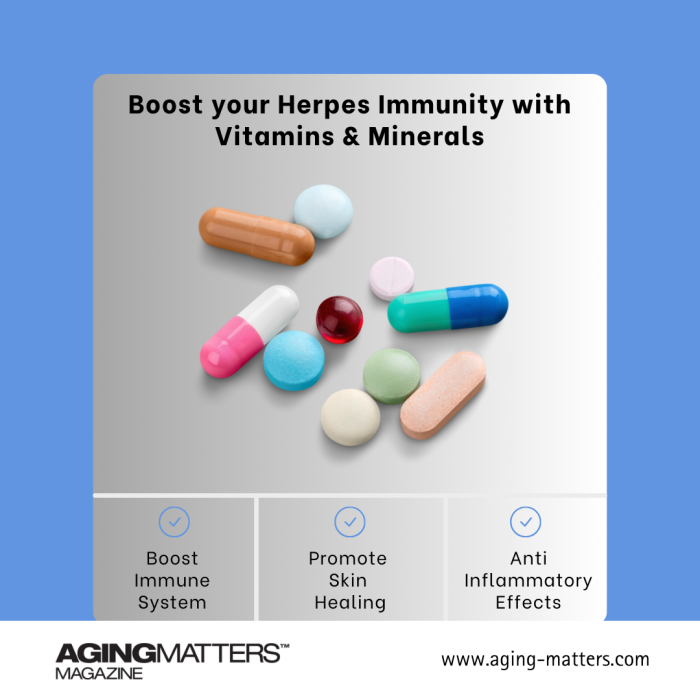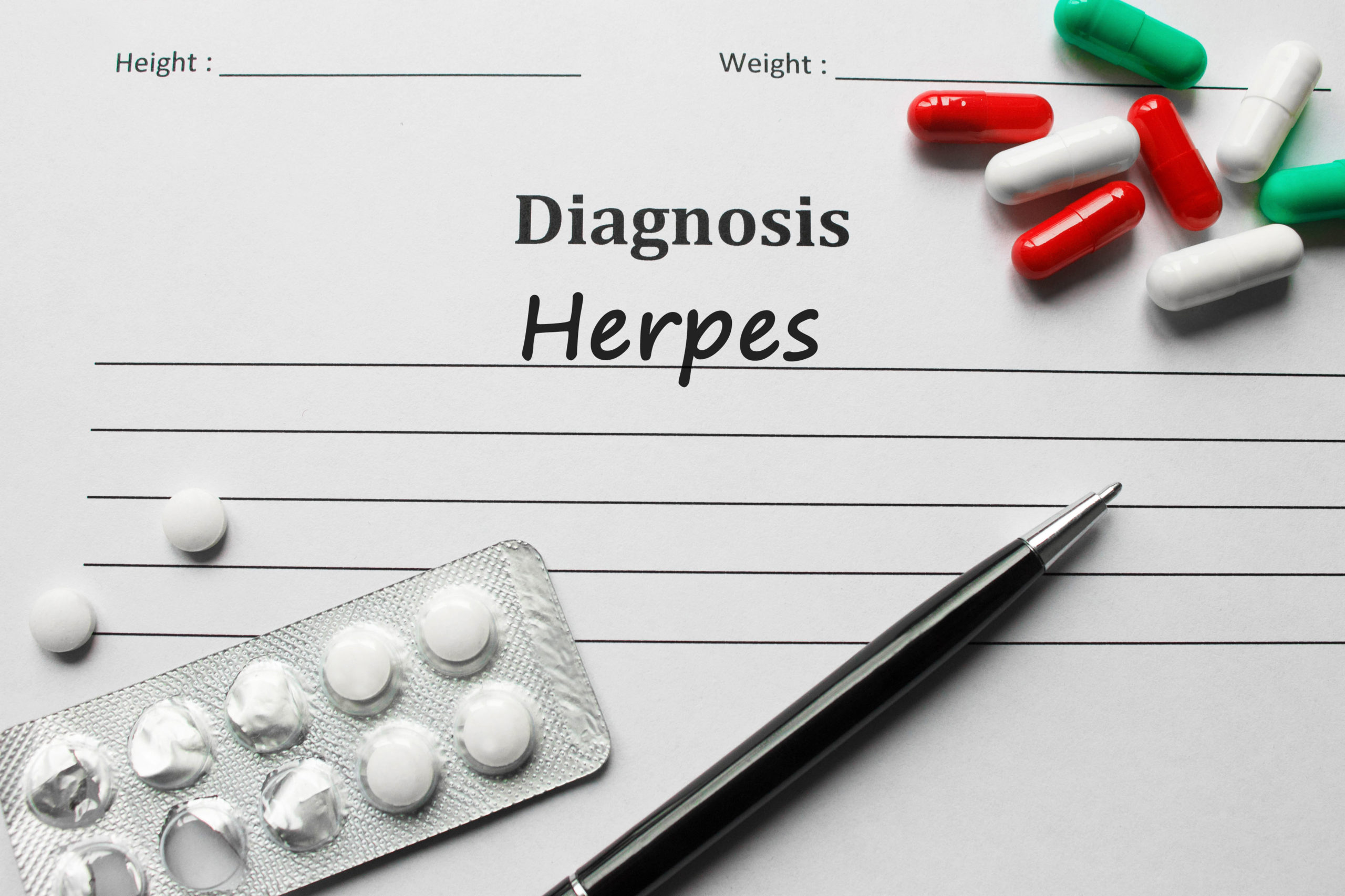
Boost your Herpes Immunity with Vitamins & Minerals
September 30th, 2024Vitamins and minerals play a crucial role in boosting the immune system to combat herpes infections. Essential nutrients like vitamins C, D, and B12, along with minerals such as zinc and selenium, contribute to the body’s defense mechanisms against the herpes simplex virus (HSV).
Vitamin C
Vitamin C (also known as ascorbic acid) is well known for its antiviral, antioxidant and immune boosting properties. It has also been linked with skin healing, reducing inflammation and managing stress.
Vitamin C helps to manage Herpes outbreaks by stimulating the production of white blood cells, as well as how well those cells function in fighting off infections. Its antiviral effects help to inhibit virus replication in the body, and its antioxidant effects help to protect cells against the damage caused by free radicals (cells that are damaged). The oxidative stress caused by a herpes outbreak can exacerbate free radical damage, so vitamin C can help to mitigate this.
Vitamin C also helps to reduce inflammation in the body, produce collagen in the skin and lower cortisol levels which in turn reduces stress – stress is a known Herpes trigger.
Our bodies do not produce Vitamin C but we can take it through diet and supplements.
Vitamin D
Vitamin D is an immune support vitamin that also promotes skin health and reduces inflammation. The human body can produce it as long as there is adequate sunshine, and it can also be consumed through diet and supplementation if necessary.
Vitamin D helps to enhance the immune system by activating T cells and macrophages which fight infections and modulates immune system response which can help reduce the risk of tissue damage. Vitamin D also reduces the inflammation caused by Herpes outbreaks. Studies have also shown that Vitamin D has antiviral properties which inhibit the replication of viruses.
Vitamin A
Vitamin A is well known for its immune enhancing effects, as well as helping to maintain healthy skin. It plays a role in managing Herpes outbreaks due to its supportive benefits on the immune system, as well as its involvement in the production and activity of white blood cells. White blood cells help to keep pathogens out of the bloodstream and subsequent travel around the body.
Vitamin A is also an anti-inflammatory, which can help the process of healing from any sores caused by Herpes. It is also beneficial overall for skin health.
We do not naturally make Vitamin A in the body, but it is produced in some plants, and the body can convert some carotenoids (pigments) into Vitamin A.
B Vitamins (B6, B12 and B9)
Vitamin B6, B12 and folic acid are all essential in supporting the immune system.
- Vitamin B6 – helps to produce antibodies and immune cells. Vitamin B6 is also beneficial for reducing inflammation caused by Herpes sores and wound healing.
- Vitamin B12 – helps to produce white blood cells which fight off infections and also aids with energy production which helps to fight the fatigue often associated with Herpes outbreaks. The cellular repair benefits of Vitamin B12 also helps with healing Herpes sores.
- Vitamin B9 (Folic acid) – Vitamin B9, better known as folic acid, is essential for the production and maintenance of new white and blood cells which boost the immune system. It is also essential for DNA synthesis and repair which supports the healing of Herpes sores and regeneration of skin cells.
Our bodies do not make or synthesise B vitamins in any significant amounts, therefore it is important to eat a diet rich in B vitamins to help keep these levels up.
Zinc
Zinc is a trace element that we all need to boost our immune system and support skin health, however we don’t make it naturally. It has to be consumed through diet and can be supported by a supplement routine.
In terms of boosting immunity against the Herpes virus, Zinc can help in a number of ways:
- It has antioxidant properties, which helps to protect the cells against damage from oxidative stress – this is where the antioxidants in the body become imbalanced against free radicals, causing damage to organs and tissues if left unchecked. This can weaken the body’s immune response.
- Zinc inhibits the replication of the herpes simplex virus (HSV) to limit its ability to multiply and spread round the body.
- The immune system needs Zinc in order to function properly, as it supports the production of cytokines, signalling molecules that help the immune response in the body. It also ensures that immune cells function properly.
- Zinc promotes wound healing, so in terms of the lesions and sores caused by the Herpes virus, this is beneficial.
- Zinc is an anti-inflammatory, helping to reduce any inflammation caused by the Herpes virus.







